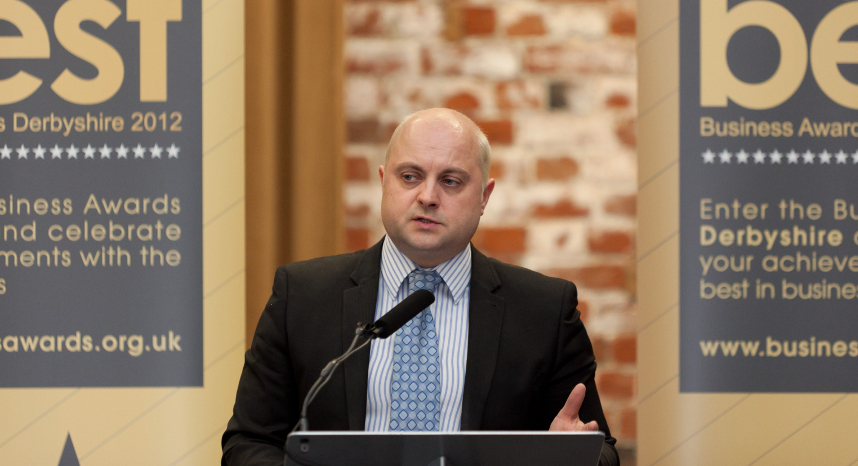The Sheffield City Region Combined Authority and LEP are asking residents and businesses to have their say and get involved in the debate on the in-principle Sheffield City Region Devolution Deal with Government.
From Monday 30 November, local residents are being invited to comment on the deal by visiting www.sheffieldcityregiondevolution.org.uk.
The proposed deal, which will mean £900m of additional funding and more power to make important economic decisions locally, has been welcomed by local business and political leaders from across the Sheffield City
What are the benefits to Chesterfield?
The major benefit to Chesterfield of the Devolution Deal is a share of £900 million over the next 30 years to support the delivery of key regeneration projects, improve the skills of local people and help local businesses become more competitive.
Current and future schemes supported via Sheffield City Region include:
- Work starting in the near future on the construction of Basin Square, the commercial heart of the Chesterfield Waterside scheme.
- Funding allocated for the development of a scheme at the town centre’s Northern Gateway, increasing the attractiveness of the town for shoppers and visitors.
- Funding ring-fenced to enable the Peak Resort development to start on site, supporting the creation of a large number of new jobs.
- The development of a new Housing Investment Fund that could unlock opportunities for housing growth in places such as the Staveley and Rother Corridor.
- The establishment of the Sheffield City Region Growth Hub, providing a one-stop-shop of support for local businesses and start-ups.
- Local business access to an Sheffield City Region funding pot of £52 million, to support capital investment that creates new employment.
- The establishment of a Skills Bank providing a flexible pot of funding for businesses to provide 42,000 qualifications over the next six years. Many Chesterfield based companies have already engaged with the current ‘Skills Made Easy’ programme to take on apprentices and train their workforce.
Councillor John Burrows, leader of Chesterfield Borough Council, said: “We are fully engaged in this devolution process. We believe from our first-hand experience the deal is good for our town and the whole Sheffield City Region.
“Our involvement with the Sheffield City Region has already brought real benefits to Chesterfield and we look forward to working collectively on improving the living standards and opportunities for people in the Sheffield City Region.
“I would encourage Chesterfield residents to read the information on the public consultation website and then give their comments during the consultation process.”
Peter Swallow, chair of Destination Chesterfield, the town’s business marketing campaign, said: “I would urge all local businesses to take part in the consultation.
“Chesterfield’s position within the Sheffield City Region means we do a lot of business with neighbouring towns and cities in the region. Devolution will give the town a seat at a more influential ‘local’ table not to mention more control over our own financial affairs.
“It could also help bring potential funding to the area further boosting our ambitious plans for growth and development in the area over the next 10 years.”
Councillor Sir Stephen Houghton, Chair of the Sheffield City Region Combined Authority, said: “We’re asking residents and businesses to have their say on our proposed deal with Government. We know that business growth and better job opportunities are issues that people really care about and that’s why we’re encouraging as many people as possible to take part.”
This deal is ultimately based on our belief that decisions that impact on local people will be better made by local leaders, who live and work locally, rather than by civil servants and Ministers in London.”
James Newman, Chairman of the Sheffield City Region LEP, said: “The LEP’s success means that local business leaders now have an increasingly important part to play in creating stronger local economic growth in Sheffield City Region. This deal enables our local political and business leaders to take decision-making to the next level, making bigger and better local decisions over skills, business growth and infrastructure. I encourage anyone with an interest in expanding their businesses and creating job opportunities for local people to show their support for the deal by visiting our consultation website.”
In October 2015, local politicians and business leaders secured the in-principle deal with the Chancellor George Osborne to transfer national powers and control over funding from national Government departments to the Sheffield City Region – as well as securing a massive £900 million additional cash boost over the next thirty years to deliver major regeneration, infrastructure and business growth schemes.
The deal needs to be formally approved by each of the local Councils within the Sheffield City Region and is subject to a programme of consultation and engagement with residents and businesses over the coming months. It is also dependent upon the Government delivering on the promises it has made in this and previous deals, and the City Region agreeing to the creation of a directly-elected Mayor.
It is a deal that marks another step in the journey that the Sheffield City Region has taken over the last five years in securing greater control over its own economic affairs. It enables the City Region to build on some of its world class assets, including the Sheffield and Rotherham based Advanced Manufacturing Innovation District, aligning the new Doncaster-based National College for High Speed Rail with the new Institutes of Technology to help meet the wider set of national infrastructure challenges, major town centre improvement plans in Barnsley and the Enterprise Zones across the whole City Region.
The deal covers a range of themes including transport, skills, creating new jobs, inward investment and support to help local businesses export as well as committing to working with Government on new ways to incentivise local growth.
For more information and to take part in the consultation visit www.sheffieldcityregiondevolution.org.uk

Growth Sculpture on Horns Bridge Roundabout in Chesterfield at Night










